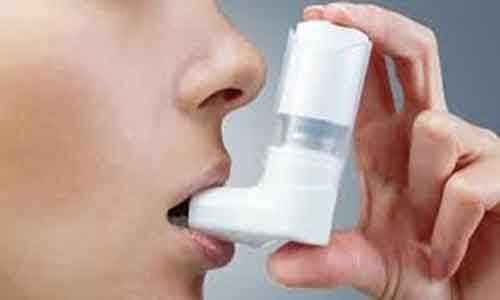- Home
- Medical news & Guidelines
- Anesthesiology
- Cardiology and CTVS
- Critical Care
- Dentistry
- Dermatology
- Diabetes and Endocrinology
- ENT
- Gastroenterology
- Medicine
- Nephrology
- Neurology
- Obstretics-Gynaecology
- Oncology
- Ophthalmology
- Orthopaedics
- Pediatrics-Neonatology
- Psychiatry
- Pulmonology
- Radiology
- Surgery
- Urology
- Laboratory Medicine
- Diet
- Nursing
- Paramedical
- Physiotherapy
- Health news
- Fact Check
- Bone Health Fact Check
- Brain Health Fact Check
- Cancer Related Fact Check
- Child Care Fact Check
- Dental and oral health fact check
- Diabetes and metabolic health fact check
- Diet and Nutrition Fact Check
- Eye and ENT Care Fact Check
- Fitness fact check
- Gut health fact check
- Heart health fact check
- Kidney health fact check
- Medical education fact check
- Men's health fact check
- Respiratory fact check
- Skin and hair care fact check
- Vaccine and Immunization fact check
- Women's health fact check
- AYUSH
- State News
- Andaman and Nicobar Islands
- Andhra Pradesh
- Arunachal Pradesh
- Assam
- Bihar
- Chandigarh
- Chattisgarh
- Dadra and Nagar Haveli
- Daman and Diu
- Delhi
- Goa
- Gujarat
- Haryana
- Himachal Pradesh
- Jammu & Kashmir
- Jharkhand
- Karnataka
- Kerala
- Ladakh
- Lakshadweep
- Madhya Pradesh
- Maharashtra
- Manipur
- Meghalaya
- Mizoram
- Nagaland
- Odisha
- Puducherry
- Punjab
- Rajasthan
- Sikkim
- Tamil Nadu
- Telangana
- Tripura
- Uttar Pradesh
- Uttrakhand
- West Bengal
- Medical Education
- Industry
Recommendations for management of severe asthma: Brazilian Thoracic Association

Brazil: A recent study in the Brazilian Journal of Pulmonology reports 2021 Brazilian Thoracic Association recommendations for the management of severe asthma. These recommendations apply to adults and children with severe asthma and are targeted at physicians involved in the treatment of asthma.
Advances in the understanding that severe asthma is a complex and heterogeneous disease and in the knowledge of asthma's pathophysiology with the identification of different endotypes and phenotypes have led to new approaches for the diagnosis and characterization of the disease resulting in relevant changes in pharmacological management. Against this backdrop, the definition of severe asthma is been established and differentiated from difficult-to-control asthma. The recommendation address this topic and review advances in new treatments for severe asthma, phenotyping, and the use of biomarkers. Emphasis is given to topics regarding personalized management of the patient and selection of biologicals, as well as the importance of evaluating the response to treatment.
For developing the guideline, a panel of 17 Brazilian pulmonologists was invited to review recent evidence on the diagnosis and management of severe asthma, adapting it to the Brazilian reality. Each of the experts was responsible for reviewing a topic or question relevant to the topic. In a second phase, four experts discussed and structured the texts produced, and, in the last phase, all experts reviewed and approved the present manuscript and its recommendations.
Given below is the summary of recommendations for the management of severe asthma:
- Patients diagnosed with or suspected of having severe asthma should be referred to a specialist.
- Adherence to treatment and proper inhalation technique must be verified at all medical visits.
- Comorbidities and environmental/occupational exposures that may worsen asthma control should be investigated and, if present, eliminated or minimized.
- Patients who need treatment with high-dose ICS (budesonide ≥ 1,600 µg or equivalent) associated with LABA and/or LAMA and/or antileukotrienes and/or OCS to maintain control or those whose asthma still remains uncontrolled should be considered as patients with severe asthma, due to the intrinsic severity of the disease.
- The inclusion of tiotropium bromide in the treatment of severe asthma is recommended, preferably prior to the use of biologicals.
- Patients with a confirmed diagnosis of severe asthma and a recommendation for treatment with biologicals should be phenotyped.
- When available, IS analysis should be performed to phenotype severe asthma.
- Measuring EosPB levels should be carried out for severe asthma phenotyping when EosIS analysis is unavailable.
- Specific IgE and/or skin prick testing should be carried out for phenotyping all patients with severe asthma.
- The total serum IgE level should be used to calculate the dose of omalizumab but not for phenotyping or treatment follow-up.
- Routine use of FeNO for phenotyping or as a management strategy for severe asthma is not recommended.
- The choice of the biological should be based on the phenotype and access to the medication.
- The evaluation of response to treatment should be objective, using as parameters asthma control and reduction in exacerbations and of the dose of corticosteroids.
- The treatment of responders should be continued indefinitely.
Reference:
The article titled, "2021 Brazilian Thoracic Association recommendations for the management of severe asthma," was published in the Brazilian Journal of Pulmonology.
Dr Kamal Kant Kohli-MBBS, DTCD- a chest specialist with more than 30 years of practice and a flair for writing clinical articles, Dr Kamal Kant Kohli joined Medical Dialogues as a Chief Editor of Medical News. Besides writing articles, as an editor, he proofreads and verifies all the medical content published on Medical Dialogues including those coming from journals, studies,medical conferences,guidelines etc. Email: drkohli@medicaldialogues.in. Contact no. 011-43720751


